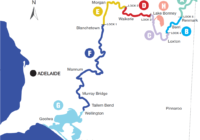I wrote my first article for a fishing magazine in my final year of high school, just before my 17th birthday. With considerable trepidation, I mailed it off to my teenage hero and the editor of what was then the Australian Angler magazine, Ron Calcutt. Several weeks passed before I received Ron’s reply, and my fingers shook nervously as I summoned the courage to finally open that nondescript envelope. It contained a short but very encouraging letter of acceptance, and a cheque for $50. I must admit, I was numb.
I sat there in my bedroom for several long minutes, still dressed in my school uniform, simply grinning the biggest grin imaginable, before running to the kitchen to proudly tell my Mum the big news.
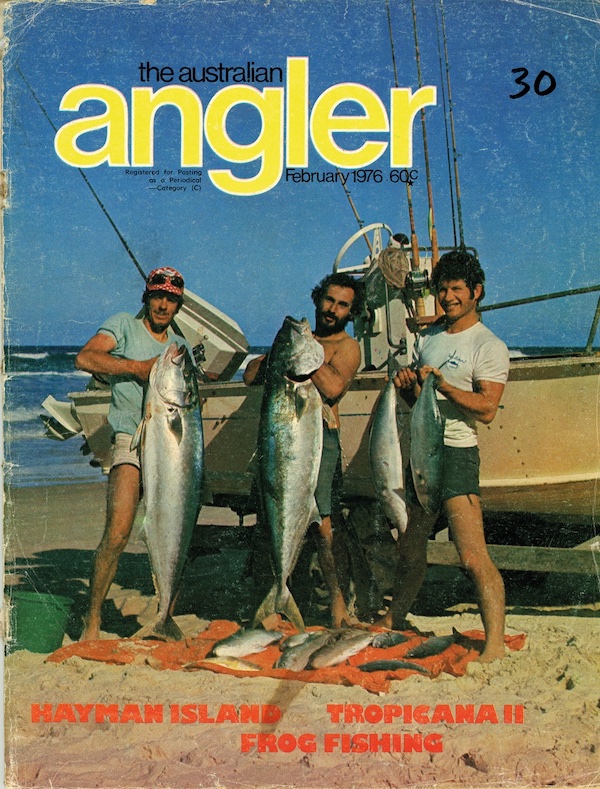
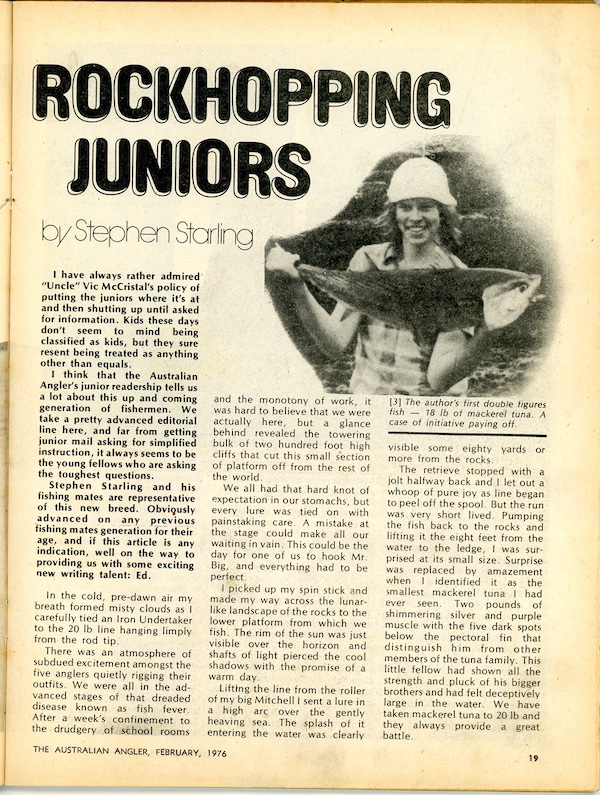
Steve’s first article appeared in the February, 1976 edition of The Australian Angler.
By the way, that’s NAFA publisher and Top End fishing legend Alex Julius (centre) on the cover.
That piece appeared in the February, 1976 issue of the Angler, and it marked the first important step on a career path that has brought me to where I am today, some 48 years later. That path certainly hasn’t made me rich in financial terms — far from it, in fact — but it has definitely made me happy and fulfilled.
Having now been writing articles, columns and books about fishing for almost half a century, as well as presenting TV segments and producing videos on the subject, you could easily be forgiven for thinking that I might be running out of stuff to talk about! But I’m not. The truth is, there’s always room to know more, and to share that knowledge. The other thing worth remembering is that fresh, new anglers are constantly joining our ranks, and doing their best to also learn the ropes.
Information, ideas, suggestions, and tips that might seem overly simplistic (or even old hat and very ho-hum to you and me) could well be absolute game-changers for them.
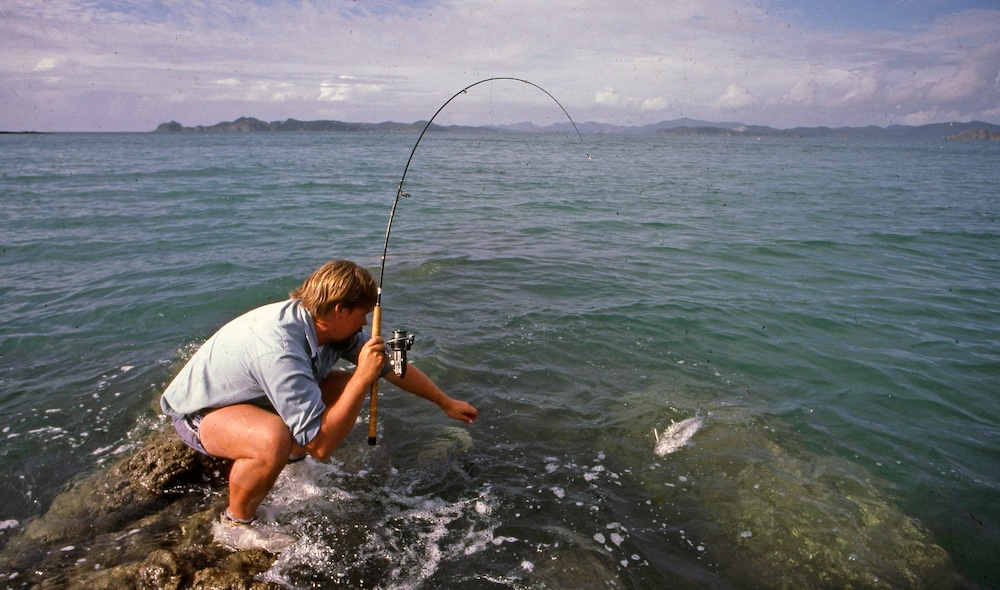
A much younger Starlo lands a feisty kahawai in New Zealand’s Bay of Islands, way back when. We should never stop learning.
When you get right down to it, there are just a handful of absolutely fundamental skills that are essential to becoming a consistently successful angler. They’re things like being able to tie a strong knot that won’t easily slip or break; construct a rig that appeals to fish; cast that rig far enough and with sufficient accuracy to reach those fish, and then know how to detect a bite, set the hook and land the catch. None of these things are exactly rocket science, yet it’s surprising how often newcomers and casual “danglers” get them a little bit wrong. Critically, falling even 10 per cent short of nailing these things and getting them “right” can dramatically impact your fishing results — often spelling the difference between a happy, fruitful day on the water with a couple of nice fish to bring home and cook up for the family, and that dreaded “walk of shame” to the fish shop instead!
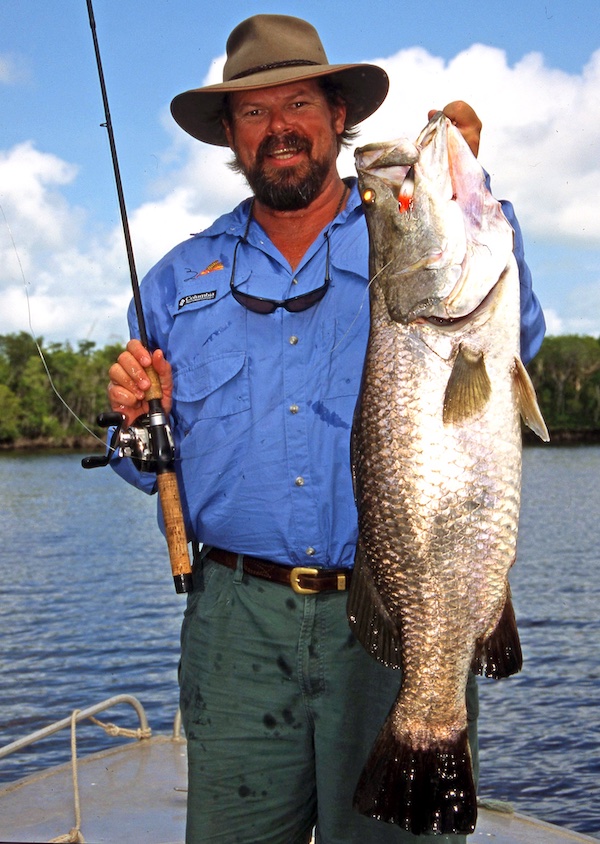
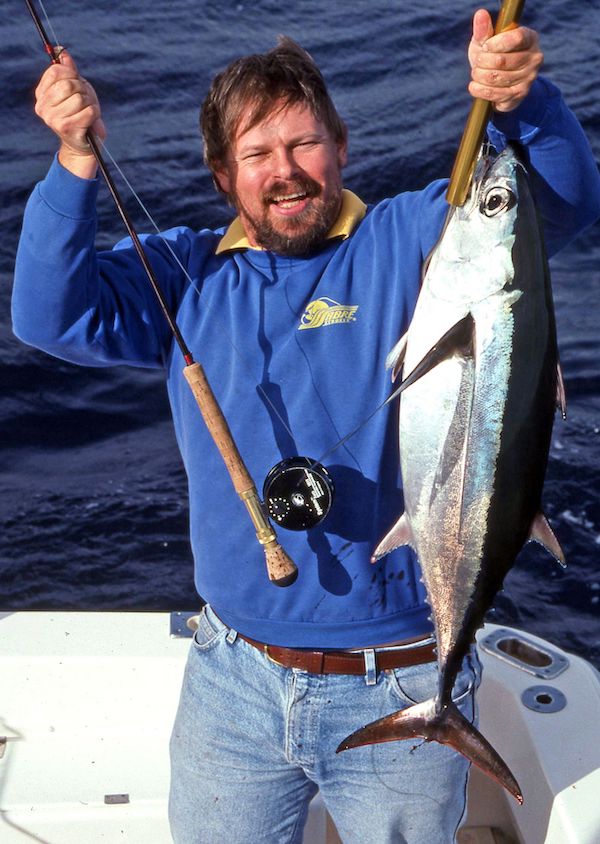
Back when he had a bit more hair! A career as a fishing communicator has been rich in experiences, if not financial benefits.
Fortunately, there are plenty of resources on offer that can fast-track your acquisition of those basic fishing skills. Having a well-informed personal mentor or mentors — be they family members, friends or club mates — is obviously a huge help, but even if you don’t have such guardian fishing angels looking over your shoulder, there’s a wealth of information out there. When I was a novice, it mostly came from books and magazines, but these days we can add all of the electronic and on-line media sources to that mix: TV shows, videos, podcasts, websites, Facebook, Instagram and — perhaps the most popular of them all — YouTube.
Beyond those absolute fishing basics that I’ve already mentioned, we move up the learning curve into the next-tier of skill sets: areas of expertise such as bait rigging, lure presentation, “reading” the water and understanding fish behaviour. These aren’t always things you can easily and quickly learn just from books, magazines, TV shows or even watching YouTube videos, but all of those resources will definitely help… I suggest you eagerly devour them!
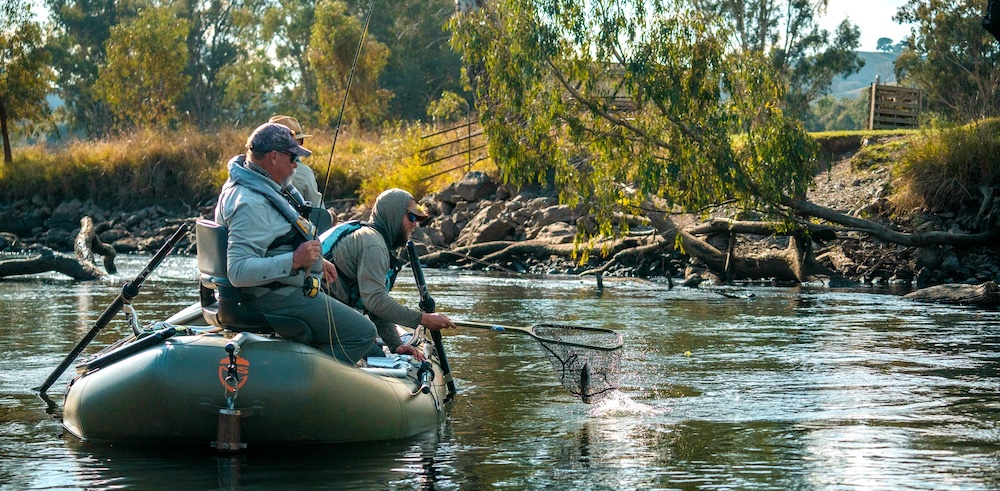
The journey has no end. Just a few weeks ago on a Tumut River drift trip with the folks from Tom’s Outdoors, Starlo was still learning.
For me, the bottom line is this: we NEVER stop learning! Or at least, we shouldn’t. I pick up at least one new idea, trick, tip or subtle nuance every single time I go fishing: whether it’s on my own, or with other anglers of varying skill levels. It’s vitally important not to be too proud to admit to such an open-ended learning experience. From what I’ve seen, those folks who reckon they know it all very rarely do.
With all of this in mind, I recently kicked off a new video series on my “Starlo Gets Reel” YouTube channel called “The Building Blocks of Fishing”. It assumes absolutely no prior knowledge on the part of the viewer, instead taking them by the metaphorical hand and leading them gently onto the easiest beginners’ slopes of that never-ending learning curve. If you’re interested — or know someone who might benefit from watching — you can simply click here to navigate straight to the first episode. But whether you do that or not, I strongly urge you to keep an open mind and to be a life-long sponge: always keen to soak up knowledge. I guarantee that such an attitude will ultimately make you a much better (and happier) fisho.
Tight lines.
![]()
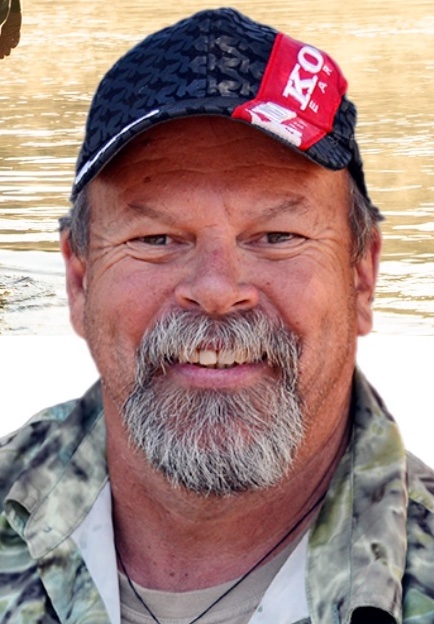
Steve (Starlo) Starling is an Australian sports fishing writer and television personality who has appeared in many of Rex Hunt’s Fishing Adventure programs on the Seven Network.
He has published twenty books on the subject of angling, as well as thousands of magazine articles.
Starlo has scripted and presented many instructional videos and DVDs, and been a Researcher and on-screen presenter for a number of Australian angling and outdoor television programs.
Follow Starlo Gets Reel on Youtube for some of the best, educational and most entertaining fishing viewing on-line.
Click on the banner below for a direct link to the Channel.






